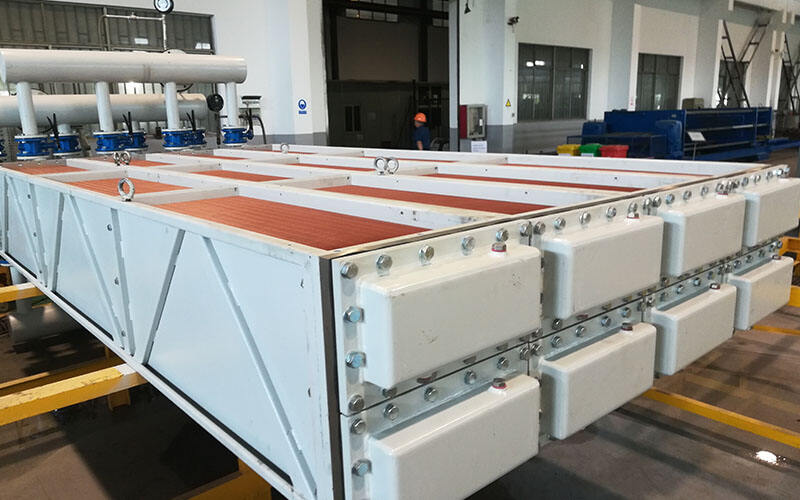When we say power, what generally comes in our mind is how to generate electricity. This electricity is typically produced by burning coal or natural gas. They use these materials because they are able to produce a large amount of energy. When we burn them, these things cause a high heat output. If we do not cool off the heat, it builds up and cause us problems. This is why keeping everything at a safe temperature is essential.

Introduction
Coolers: To cool things off, we catch on to something called coolers which cools down the temperature of hot products. There are a couple of prime coolers that we may use here, which might be Hydrogen cooler and air cooler. While a hydrogen cooler utilizes the non-corrosive gas, not surprisingly named Hydrogen to cool enclosures and other equipment an air-cooled is more what you would expect just using regular old air. Coolers of each kind have unique features and applications.
Benefits
But which one is better suited to keeping things chill? Both types of coolers have their pros and cons, so it is good to know the positive side as well as the bad.
This is one of the benefits to using hydrogen coolers as they have a faster cooldown time than that with an air cooler. Hydrogen is good for getting the heat out of - and off - stuff, as it were. It is able to quickly and efficiently absorb heat. On the minus side though, hydrogen is a highly flammable gas. That lead to a danger of burst in case something would go wrong - which is actually not very safe. Hydrogen coolers do work fast however we have to be careful in operating with it.
However, one of the advantages that air coolers have is they are less hazardous than hydrogen seal systems A and D. That would be because air cannot catch fire or explosion. This makes Best air cooler a great alternative when safety is major issue. Unfortunately, air coolers take a long time to cool compared to hydrogen. These tend to do the job slower (Which may be inconvenient in some situations).
How well hydrogen and air coolers actually do the job of generating power
The LS Cooler (left) and XL in their neoprene computer cushion garb. Both types work effectively to keep things from overheating. Yet, hydrogen coolers are often regarded as superior to air-cooled by. This is as a result of lower hypothetical warmth exchange that can be achieved, just hydrogen coolers have the capacity to fulfil this requirement because it uses less vitality (lower heat exchanging) and cools quicker than air-cool? Energy efficient, this is important because it saves energy reducing the costs of power production overall. The better a cooler works, the less energy we have to ruin turning it into electricity.
Few things that you should keep in mind
So, how does hydrogen cooling differ in principle from air chilled? To start with, as we already noted above: hydrogen is a lot better at transporting heat than air. This way, it can catch things in a less time revitalizing down. Secondly, hydrogen is flammable, air isn't. While this is one of the reasons to think about hydrogen cooling seriously but at the same time it means that using hydrogen as a primary coolant requires more safety than air or any other type of cooler. Third is, the use of energy can be more efficient than in an air cooling system by hydrogen cooling.
Applications
Hydrogen and Air based cooling systems each have their respective advantages and limitations when it comes to power generation. The hydrogen cooling systems are good at dissipating heat quickly, require very low energy input and maintenance. This makes them less-maintenance creatures. However, the cons include higher prices of hydrogen compared to petrol/diesel and possible safety hazards due to use of a flammable gas that requires certain safeguards for safe usage.
On the other hand, Magnet journal pointed out about air cooling systems that they have a weakness where we find their advantages: safety but also costs and simplicity. They are easy to understand and work with, which is a great thing. On the flip side, air cooling systems are less efficient - which that means they can be slower getting things cold and will require more upkeep to continue operating efficiently.
Now, the question; hydrogen or air cooling which one is better? That really comes down to what you want out of a cooler.
Hydrogen cooling is likely for you when it comes to efficiency and rapid-cooling. Without a doubt, though things to consider air conditioning can be the more secure selection if you or your team desires of wildlife. It comes to weighing the pros from cons of each type and choosing what fits for you best on your needs, while finding a solution in this mess.
Conclusion
Thus, hydrogen and air cooling systems both have their advantages and disadvantages. In the end, which one to utilize all depends on what this power system needs. Basis the above information you can take a good decision. With these factors in mind, you can select the best cooling system for your situation.

